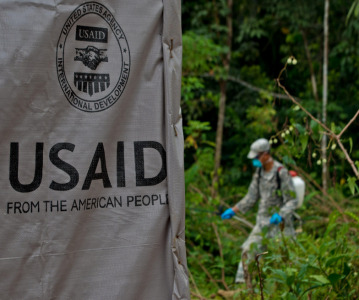Trends in autoinjectors and pre-filled syringes

The rise of specialty and biologics has meant that one of the fastest growing segments by value today are Injectables demonstrating a 5-Year CAGR of 10%. This growth of course has implications and creates pressures across various areas such as treatment capacity and supply chain.
Yasemin Karanis, Consultant, European Thought Leadership, IQVIA
Growth of Injectables and Implications
Infusion is still one of the largest segments within Injectables today and has the biggest impact on hospital capacity constraints as they are timely and require preparation and HCPs for administration. In a post-COVID environment, alternative delivery sites and taking the patient out of the hospital setting where possible has become increasingly important and again infusions and certain vials etc. that need preparation are some of the more challenging products to do this with.
Within injectables, Pre-Filled Syringes and Cartridges/Pens are some of the fastest growing segments. (Figure 1) The strong growth of Pre-Filled Syringes and Auto-Injectors as types of injectables may be attributed to the convenience these delivery systems provide in the administration process. In comparison to intravenous infusions, they are quicker to prepare and administer as well as more convenient and comfortable for patients. Fixed dose pre-filled syringes have the potential to alleviate pressures on hospitals that are increasingly struggling with infusion capacity.
Figure 1

Therapy Area Trends for Pre-Filled Syringes and Auto-Injectors
Self-Administration is trending wherever possible and it’s certainly most developed in diabetes where we see the highest share of Auto-Injectors providing significant benefits to patients with easy to use dosing mechanisms and safe handling. (Figure 2)
Oncology which is a disease area where complex biologics and injectables make up a big segment, is slower in comparison on the uptake in Pre-Filled Syringe and Auto Injector delivery mechanisms. Figure 2 shows the Pre-Filled Syringe and Autoinjector segments as a part of overall injectables in these therapy areas. Even though Oncology has the largest injectables segment, a much smaller proportion comes from Pre-Filled Syringes.
However, we are certainly seeing a movement towards PFS in Oncology. Not only as life-cycle management such as Roche’s HER2 franchise or Darzelex this year being approved in its Sub-cutaneous Pre-Filled Syringe formulation but there are also a number of assets being developed as sub-cut injections from the start. There is certainly room for growth for Pre-Filled Syringes in Oncology as their value is increasingly recognized.
Figure 2

Innovation in PFS and AI
Pre-Filled Syringes and Autoinjectors certainly provide value to Hospitals and HCPs through quicker and easier drug administration process but maybe most importantly they provide value to patients. The importance of focusing on the patient is increasingly recognised by companies and other stakeholders, something that is in the heart of Auto-injectors and innovation in this segment.
Biggest promise technologies or products that are patient centric can provide sit within adherence. Connectivity and improving patient experience through easy to use auto-injectors and devices, for example with discreet needle systems and designs, could help reduce this burden non-adherence has on the global healthcare system. Drug delivery device companies with impressive technologies are increasingly collaborating with pharmaceutical and biotech companies to optimize patient experience.
As the sector is evolving, the packaging industry will play a pivotal role in bringing value to the healthcare system and most importantly to patients. And as the industry is shifting towards specialty medicines and injectables, Pre-Filled Syringes and Auto-injectors are at the heart of the pharmaceutical industry going forward.
Related News
-
News US FDA adds haemodialysis bloodlines to devices shortage list
On March 14, 2025, the US FDA published an open letter to healthcare providers citing continuing supply disruptions of haemodialysis bloodlines, an essential component of dialysis machines. -
News Women in Pharma: Manufacturing personal and team success
Our monthly Women in Pharma series highlights the influential lives and works of impactful women working across the pharmaceutical industry, and how the industry can work towards making the healthcare industry and workplace more equitable and inclusive... -
News Pfizer may shift production back to US under Trump pharma tariffs
At the 45th TD Cowen annual healthcare conference in Boston, USA, Pfizer CEO Albert Bourla outlined the potential for Pfizer to shift its overseas drug manufacturing back to the US as pharmaceutical industry players weigh their options against Presiden... -
News Experimental drug for managing aortic valve stenosis shows promise
The new small molecule drug ataciguat is garnering attention for its potential to manage aortic valve stenosis, which may prevent the need for surgery and significantly improve patient experience. -
News Women in Pharma: Connecting accessible pharma packaging to patients – a Pharmapack Special
Throughout our Women in Pharma series, we aim to highlight how CPHI events encourage discussions around diversity, equity, and inclusion initiatives in the pharmaceutical industry. -
News Vertex Pharmaceuticals stock jumps as FDA approves non-opioid painkiller
UK-based Vertex Pharmaceuticals saw their stock shares soar as the US FDA signed off on the non-opioid painkiller Journavx, also known as suzetrigine, for patients with moderate to severe acute pain, caused by surgery, accidents, or injuries. -
News Trump administration halts global supply of HIV, malaria, tuberculosis drugs
In various memos circulated to the United States Agency for International Development (USAID), the Trump administration has demanded contractors and partners to immediately stop work in supplying lifesaving drugs for HIV, malaria, and tuberculosis to c... -
News 2024 Drug Approvals: a lexicon of notable drugs and clinical trials
50 drugs received FDA approval in 2024. The centre for biologics evaluation and research also identified six new Orphan drug approvals as under Biologics License Applications (BLAs). The following list picks out key approvals from the list, and highlig...
Recently Visited
Position your company at the heart of the global Pharma industry with a CPHI Online membership
-
Your products and solutions visible to thousands of visitors within the largest Pharma marketplace
-
Generate high-quality, engaged leads for your business, all year round
-
Promote your business as the industry’s thought-leader by hosting your reports, brochures and videos within your profile
-
Your company’s profile boosted at all participating CPHI events
-
An easy-to-use platform with a detailed dashboard showing your leads and performance







